Ibadan: A City That Continues to Reveal Itself
By Temilade Aloko

After the transition of Oba Owolabi Olakulehin,The 43RD Olubadan of Ibadanland. I got messages from many people asking questions about the Ibadan chieftaincy system: Why do we always have elderly monarchs in Ibadan? Is it forbidden for younger people to become king? Why is the succession system so unique?
To be honest, I didn’t always have ready answers. The chieftaincy system of Ibadan is layered with tradition, history, and peculiarities that require deep understanding.
But one thing I can confidently say is that anchoring the radio program Okebadan since 2016 has been a rare and enriching opportunity for me. It has opened my eyes to the remarkable depth and beauty of Ibadan, far beyond what outsiders typically see or understand.
Through Okebadan, I’ve learned so much—from the intricacies of the city’s rotational chieftaincy to the vibrancy of its Egungun festival, from the origins of street names to the political milestones that shaped the Southwest, and indeed, Nigeria at large. I have come to appreciate the warlords who defended Yorubaland, the family compounds and their histories, and the powerful oríkìs that immortalize the legacy of Ibadan warriors.
Ibadan is not just an ancient town; it is a living museum. It is the cradle of broadcasting, the seat of politics, the hub of publishing and entertainment, and a melting pot of diverse cultures. It is hard to find any prominent Nigerian who hasn’t, at some point, passed through this city of firsts.
Books That Deepened My Love for Ibadan
As a student of Theatre Arts at the University of Ibadan, I read many books on Ibadan. One of them was Ibadan: The Penkelemes Years (1945–1965) by Wole Soyinka. Though the book is rich and scholarly, it didn’t stir my emotions deeply—perhaps because of the academic tone. However, the book that truly made me fall in love with Ibadan was Under the Brown Rusted Roofs by Abimbola Adunni Adelakun.
That novel captured the heartbeat of the city. Set during the socio-political turbulence of the late 1970s and early 1980s, it follows the story of Alhaji Isiaka Arigbabuwo, a wealthy but uneducated businessman who wins an election—only to be ousted by a military coup. The drama then shifts to his polygamous household, which begins to unravel under financial and emotional strain. Through the eyes of Arigbabuwo, his wives (Afusa and Sikira), and their children, the author deftly explores themes such as:
- Polygamy and patriarchy
- Education versus illiteracy
- Yoruba cultural identity, richly woven with proverbs and idioms
- Political instability, corruption, and compound life in Ibadan
The book remains, to me, a mirror of how Ibadan people live, speak, suffer, love, and dream—under the metaphorical “brown rusted roofs.”
The Mosaic of “Ibadan Mesiogo”
Another major literary discovery for me was IBADAN Mesiogo – A Celebration of a City, Its History and People, an anthology edited by some of Ibadan’s most distinguished literary voices: the late Professor Dapo Adelugba (my beloved former HOD), Professor Remi Raji (now Mogaji of Ile Adegboro), Omowunmi Segun, and Bankole Olayebi.
Published by Bookcraft in Ibadan, Ibadan Mesiogo brings together over 20 contributors who reflect on Ibadan life between the 1940s and 1970s. The book is a literary mosaic of memoirs, poetry, essays, and short stories—each one a love letter to Ibadan.
My favorite entry is “The Dog Catcher of Alakia” by the late Dr. Femi Fatoba, who was also my favorite lecturer. The anthology captures not just the physical city but the spirit of Ibadan: expressive, humorous, raw, and unforgettable. The Yoruba word “Mesiogo” (meaning “eccentric” or “madness with a method”) truly defines the soul of the city.
Poetic Tributes and Personal Stories
Even those who were not born in Ibadan couldn’t help but be moved by it. The late Ijaw poet J.P. Clark wrote his iconic poem “Ibadan” in 1965, describing the city as:
“Ibadan,
Running splash of rust and gold –
Flung and scattered among seven hills
Like broken china in the sun.”
Clark’s connection to Ibadan—where he studied and later worked—was both intellectual and emotional. He even met his wife, Ebun Odutola, in the city.
In more recent times, I had the privilege of interviewing poet Ibukun Babarinde on Okebadan. His collection Running Splash of Rust and Gold celebrates Ibadan with a modern voice—evoking its energy, its markets, its bus stops, and the unmistakable street language of drivers and conductors. Michael Olatunbosun, in his review of the book, noted how the poems reflect not just local life but national issues, making Ibadan a metaphor for Nigeria itself.
Living History on the Airwaves
Through Okebadan, I’ve had the honour of interviewing both natives and non-natives who have made Ibadan their home and contributed to its greatness—people like Emeritus Professor Ayo Bamgbose, Professor Toun Ogunseye, Professor Ayodele Desalu, and many others.
I have had the opportunity to discuss a wide range of topics—from the origins of the Okebadan Festival to the controversial “immorality songs” traditionally sung during the celebration. One particularly memorable interview was with Dr. Gbolahan Abbass, the Mogaji of Oke Ona Ibikunle and a retired Director at the Oyo State Ministry of Health., to the great warlords like Balogun Ibikunle, Are Latoosa, Oluyole, Oderinlo, and Ajayi. We’ve explored the artistry behind Ibadan oríkì—which are not just praise songs but historical archives in poetic form.
One of my unforgettable interviews was with Oba Eddy Oyewole, the Osi Olubadan, in 2016. He explained the meaning behind each line of Ibadan’s oríkì, revealing the strategies, stories, and glories of the city’s warlords. A repeat of that episode will air today on Splash 105.5 FM, and I encourage everyone to tune in and listen—you will understand Ibadan beyond the surface.
A Daughter by Passion and Immersion
Although I am not an indigene of Ibadan, I proudly call myself a daughter of Ibadan—by passion and immersion. The city has taught me, shaped me, and continues to inspire my work and worldview. I continue to be curious. I continue to learn.
Every street name, every family house, every festival and prayer chant reveals another layer of this city. From Isale Ijebu to Oke-Ado, from Oja’ba to Mokola, from Dugbe to Sango, Ibadan breathes stories—and I am honored to help tell them.
Ibadan may be loud, chaotic, and even misunderstood. But once you sit with her stories, once you listen to her oríkì, once you walk her hills and speak her tongue, you fall in love.
Ibadan a gbe wa o.


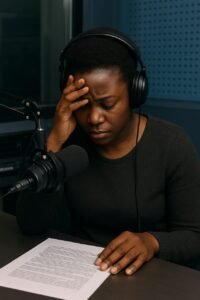


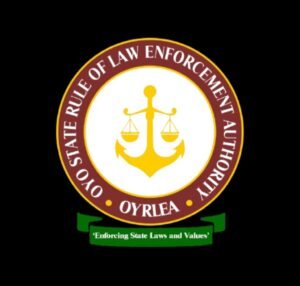

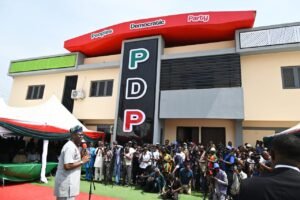
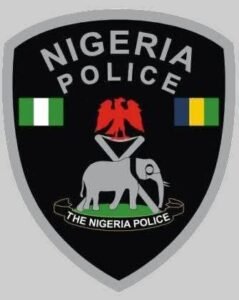
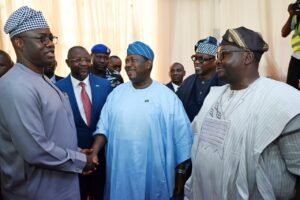
Thank you for this expose on Ibadan. Indeed, you’re our sister in Ibadan and we accept you with open arms. You have elevated Ibadan with your program Okebadan and the array of guests you have invited have enriched conversations about Ibadan.